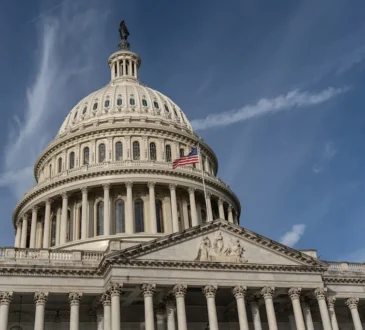
Stay informed with free updates
Simply sign up to the Financial & markets regulation myFT Digest — delivered directly to your inbox.
Policymakers should strengthen their oversight of hedge funds, private equity and credit funds, which could amplify any downturn in financial markets and transmit stress to the banking system, the IMF has warned.
The growth of financing activity outside of the traditional banking sector is adding an extra source of risk to the financial system, the IMF said, after finding many large lenders had increasingly high exposure to hedge funds and other non-bank institutions, which are more lightly regulated.
Banks in the US and Europe have $4.5tn of exposures to hedge funds, private credit groups and other non-bank financial institutions — accounting for on average about 9 per cent of total loan books, the fund said.
“Beneath the calm surface, the ground is shifting in several parts of the financial system, giving rise to vulnerabilities,” the IMF said in its twice-yearly global financial stability report, reinforcing recent warnings from leading central bankers.
The warning comes as financial regulators are monitoring the collapse of First Brands Group and Tricolor to assess if the failed US companies that relied heavily on asset-based lending are a symptom of wider problems in fast-growing private credit markets.
“We have seen an uptick in leverage in this sector and we have seen an uptick in the exposure of banks to non-banks generally and that includes both hedge funds and private equity and private credit funds,” Tobias Adrian, IMF director of monetary and capital markets, told the Financial Times.
The IMF said on Tuesday that a significant number of US and Eurozone lenders had built up an exposure to non-bank financial intermediaries above the value of their tier one capital — an equity buffer that absorbs losses in a crisis.
Lenders with non-bank exposures worth more than their capital now represent more than 40 per cent of total banking assets, the IMF said. A handful of US and Eurozone banks have non-bank exposures worth more than five times their capital, it said.
“Banks are increasingly lending to private credit funds because these loans often deliver higher returns on equity than traditional commercial and industrial lending, thanks to the lower capital requirements allowed by their collateral structure,” the fund said.
A recent push by private equity and private credit funds to provide access to retail investors has also raised concerns about the risk of forced asset sales to meet demand from people looking to cash out in a market crash.
“The worry is that if we were to enter into a more pronounced downturn there would be more redemption pressures in these retail products. So yes, that is a first order concern,” said Adrian.
There were still significant gaps in the disclosure by some non-banks of their assets, leverage and liquidity to regulators “making vulnerabilities and interconnections harder to detect”, Adrian said. Regulators needed “better data and stronger co-ordination”, he added.
Hedge funds have rejected recent calls for tighter scrutiny, saying they use less leverage than banks and do not benefit from taxpayer-backed deposit guarantee schemes.
Adrian said the financial system had largely showed its “resilience” during a sharp, but shortlived sell-off in financial markets in April after US President Donald Trump announced higher tariffs on imports from many countries.
But the IMF said the risk of a downturn in financial markets had increased since a surge in equity markets led by optimism about the potential for artificial intelligence.
It estimated equity markets were 10 per cent overvalued compared with their “fair value” estimate, but it added this was lower than the 20 per cent overvaluation just before the dotcom bubble burst in 2000.
Earlier on Tuesday, the IMF upgraded growth forecasts for the global economy and the US, with the latter benefiting from surging investment in AI.
Data visualisation by Martin Stabe





